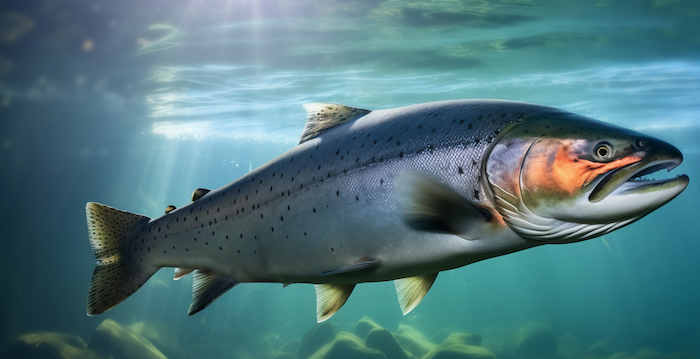A few months ago, I was in a meeting with the strategy chief from a leading agency who vehemently confronted me for suggesting that their newly won client (the biggest brand in the category) could be a challenger.
They claimed that this would go against the principles of the book. Technically, they are correct if we refer to page 26 of the second edition of Eating the Big Fish: The Three Criteria for a Challenger Brand.
The criteria are:
1. State of market: Challengers are by definition not the number one brands nor are they niche
2. State of mind: Challenger brands have a mindset that encompasses two key differentiators:
- Ambitions that exceed conventional marketing resources
- A preparedness to accept the implications of that gap
3. Rate of success: There is a period of their life in which they enjoyed rapid growth
Although I accept the technical definition defined 25 years ago, I still believe that this brand needs to think like a challenger or face inevitable, slow demise.
How can that be when the antithesis of challenger brands are establishment brands, with the brand leader being the most dominant? This brand is the biggest in its category, so should it not be classified as the brand leader and therefore part of the establishment?
In this particular case, the client had approached us six months earlier to express that they knew they had lost their leadership. While still the biggest in size, they now had one of the smallest voices, lost in the sea of conventional tropes consistently played out across the category.
They were facing aggressive competition, both in terms of share of voice and image, from new entrants and other direct-to-consumer (DTC) business models. These competitors outspent them in relation to their market share due to tightly coupling media spend with performance marketing and proven ROI.
They were burdened by their incumbency from every angle. I stand by my view that they should embrace the challenger ideology because they desperately needed a mechanism, a code, a language, a mindset, to help break this curse. With new leadership on board, they had a deep desire for change and the timing was right.
Today, 25 years after Eating the Big Fish was first released, we are faced with a different context. Categories are blurring, new ways to define leadership are emerging, and new models with different dynamics are at play across the value chain. It is the big establishment brands that need challenger thinking the most.
They need it to fuel change, reinvigorate their organisations, drive progress, and become more challenger-oriented. That is why, today, we talk more about the challenger mindset than challenger brands because:
1. It depends on how you define leadership
Share of market and share of voice don’t always relate as directly as they have in the past. Therefore, we should question whether revenue, scale, or other factors are the only way to define leadership. Is mental availability, image perception, or a culture that drives momentum a better way to define it?
For example, in South Africa, is Nando’s, Chicken Licken, or KFC the market leader? I guess it depends on how you look at it…
2. It depends on how you define the category
Is the category defined in traditional terms, or is it bigger and broader than how we’ve defined it in the past? If we broaden our view and look beyond, for example, just Telco, could we consider ourselves a technology player or even an Information, communications, and technology player?
I love a quote from the Innocent case study that you can find on www.thechallengerproject.com. In it, Douglas Lamont explains how despite being the top-selling smoothie brand in Europe, they see themselves as part of the broader category of chilled juice.
By thinking like a number two brand, even as a market leader, they bring impetus and talent to the organisation.
3. It depends on the extent of change you are willing to accept
If you’re an establishment brand and/or a brand Leader (however you define it) and you need to transform your business, a challenger mindset could work well for you if you embrace and follow through on ambitious change.
As Phil Knight once said, “To remain the industry Goliath, we need to think like the industry David.”
So, when an establishment brand or a brand leader needs to respond to changing circumstances and the threat of incumbency, it should re-evaluate what risk and responsibility mean for its marketing.
Typically, incumbents see the following as responsible behaviour when, in fact, it is risky:
- Trying to appeal to everybody
- Learning from competition
- Reinforcing the status quo
- Working within limitations
- Prioritising efficiency over effectiveness
On the other hand, what is typically seen as risky behaviour is, in fact, responsible:
- Standing apart and being different
- Learning from outside our category
- Challenging assumptions
- Seeing constraints as stimulus for improvement
- Prioritising effectiveness over efficiency
And so, if you’re facing incumbency or if you’re already cursed by it, don’t be limited by the definition of a challenger brand. That won’t change. However, this doesn’t mean you can’t adopt the mindset of a challenger. Think back to your company’s roots – you were a challenger at some point.
What’s stopping you from being one again? It’s not the definition of a challenger that’s holding you back, but rather self-imposed internal constraints. Look at the possibilities that open up when you embrace a challenger mindset.
Understand how challenger brands operate and use these fundamentals to remove something from the category and introduce something better. Take the initiative and improve the category, starting from within your own organisation.

David Blyth is founder of Delta Victor Bravo. He is an experienced strategy practitioner with over 26 years of experience in leading significant brand, insight, marketing, people, research and technology projects for large corporate organisations across the world. He founded Delta Victor Bravo® in September 2018. Previously David was CEO of Yellowwood (until August 2018).
For more information, visit www.deltavictorbravo.com or www.linkedin.com/company/eatbigfish-africa/














